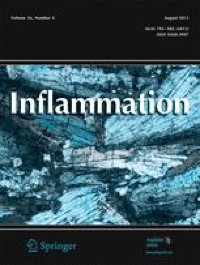|
Αρχειοθήκη ιστολογίου
-
►
2023
(256)
- ► Φεβρουαρίου (140)
- ► Ιανουαρίου (116)
-
►
2022
(1695)
- ► Δεκεμβρίου (78)
- ► Σεπτεμβρίου (142)
- ► Φεβρουαρίου (155)
-
▼
2021
(5507)
- ► Δεκεμβρίου (139)
- ► Σεπτεμβρίου (333)
- ► Φεβρουαρίου (628)
-
▼
Ιανουαρίου
(580)
-
▼
Ιαν 07
(34)
- An overview of opioid usage and regional anesthesi...
- A novel partition selection method for modular fac...
- Fast approach for moving vehicle localization and ...
- Ultrasound evaluation of ductal carcinoma in situ ...
- Comparison of testicular vascularity via superb mi...
- Ultrasound evaluation of the first finger’s sesamo...
- Contrast-enhanced ultrasound features of breast ca...
- Air bronchogram integrated lung ultrasound score t...
- Smoothed particle hydrodynamics simulation of biph...
- Closure of Gastrointestinal Fistulas and Leaks wit...
- Trans-pulmonary closure of an aorto-pulmonary wind...
- Increasing role of cardiac surgeons in managing ca...
- Modulation of TNFR 1-triggered two opposing signal...
- Relationship between clinicopathologic factors and...
- SH2 domain-containing protein tyrosine phosphatase...
- Effective clearance of uremic toxins using functio...
- Therapeutic approach for global myocardial injury ...
- The clinical efficacy and safety of single-agent p...
- Mesenteric Venous Thrombosis Due to Coronavirus
- Lymphatic filariasis
- Regulation of human THP-1 macrophage polarization ...
- PCR-based diagnosis is not always useful in the ac...
- Characterization and localization of antigens for ...
- Periorbital human dirofilariasis
- How I do it: Management of venous bleeding from th...
- Familial tendency in patients with lipoma of the f...
- Wip1 Aggravates the Cerulein-Induced Cell Autophag...
- Decreased expression of TRIM3 gene predicts a poor...
- Safety and tolerability of regorafenib:
- Gastric Cancer Incidence and Mortality in French G...
- Endoscopic Ultrasonography is a Promising Tool for...
- Endoscopic Ultrasound-Guided Ethanol Injection Ass...
- TERRA Gene Expression in Gastric Cancer: Role of h...
- Immunohistochemical Expression Pattern of MLH1, MS...
-
▼
Ιαν 07
(34)
-
►
2020
(1810)
- ► Δεκεμβρίου (544)
- ► Σεπτεμβρίου (32)
- ► Φεβρουαρίου (28)
-
►
2019
(7684)
- ► Δεκεμβρίου (18)
- ► Σεπτεμβρίου (53)
- ► Φεβρουαρίου (2841)
- ► Ιανουαρίου (2803)
-
►
2018
(31838)
- ► Δεκεμβρίου (2810)
- ► Σεπτεμβρίου (2870)
- ► Φεβρουαρίου (2420)
- ► Ιανουαρίου (2395)
-
►
2017
(31987)
- ► Δεκεμβρίου (2460)
- ► Σεπτεμβρίου (2605)
- ► Φεβρουαρίου (2785)
- ► Ιανουαρίου (2830)
-
►
2016
(5308)
- ► Δεκεμβρίου (2118)
- ► Σεπτεμβρίου (877)
- ► Φεβρουαρίου (41)
- ► Ιανουαρίου (39)
Αλέξανδρος Γ. Σφακιανάκης
ΩτοΡινοΛαρυγγολόγος
Αναπαύσεως 5
Άγιος Νικόλαος Κρήτη 72100
2841026182
6032607174
Πέμπτη 7 Ιανουαρίου 2021
Wip1 Aggravates the Cerulein-Induced Cell Autophagy and Inflammatory Injury by Targeting STING/TBK1/IRF3 in Acute Pancreatitis
Εγγραφή σε:
Σχόλια ανάρτησης (Atom)



Δεν υπάρχουν σχόλια:
Δημοσίευση σχολίου